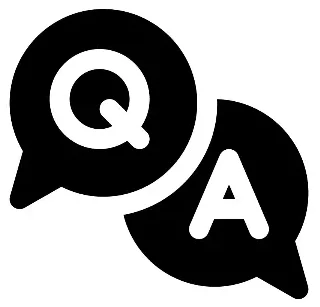regression analysis: simplify complex data relationships coursera weekly challenges 4 answers
Test your knowledge: The chi-squared test
1. The chi-squared goodness of fit test determines whether an observed categorical variable follows an expected distribution.
- True
- False
2. Which test determines whether two categorical variables are associated with each other?
- Chi-squared test for dependence
- Chi-squared alternative of fit test
- Chi-squared goodness of fit test
- Chi-squared test for independence
3. Fill in the blank: The chi-squared statistic equals the sum of the observed number minus the expected number, squared, divided by the _____ number.
- observed
- predicted
- expected
- hypothesis
Test your knowledge: Analysis of variance
4. Which of the following statements accurately describe t-tests and analyses of variance? Select all that apply.
- A t-test can only test the difference of mean between two groups.
- A t-test can test means between several groups.
- An analysis of variance test can only test the difference of mean between two groups.
- An analysis of variance test can test means between several groups.
5. Which of the following are analysis of variance (ANOVA) tests? Select all that apply.
- Five-way ANOVA
- One-way ANOVA
- Half-way ANOVA
- Two-way ANOVA
6. Fill in the blank: A post hoc test performs a pairwise comparison between all available groups while controlling for the _____.
- confidence interval
- variable selection
- Tukey’s HSD
- error rate
Test your knowledge: ANCOVA, MANOVA, and MANCOVA
7. Which statistical technique better isolates the relationship between a single categorical variable of interest and the Y variable?
- Analysis of covariance (ANCOVA)
- Multivariate analysis of variance (MANOVA)
- One-way ANOVA
- Multivariate analysis of covariance (MANCOVA)
8. Which of the following statements accurately describe ANCOVA and linear regression? Select all that apply.
- ANCOVA includes covariates to gain a more clear understanding of the categorical variable.
- ANCOVA allows for continuous and categorical independent variables
- Linear regression focuses on a continuous Y variable
- Linear regression helps predict the Y variable for unrecognized data.
9. What is the key difference between MANCOVA and MANOVA?
- MANCOVA includes a null hypothesis.
- MANCOVA controls for covariates.
- MANOVA includes a categorical variable.
- MANOVA has two or more continuous variables.
Weekly challenge 4
10. Fill in the blank: The _____ determines whether an observed categorical variable follows an expected distribution.
- f-test
- bias-variance test
- chi-squared test for independence
- chi-squared goodness of fit test
11. What examines the relationship between categorical variables and continuous variables?
- Loss function
- Adjusted R-squared
- Explanatory variance
- Analysis of variance
12. Fill in the blank: Two-way analysis of variance testing compares the means of one continuous dependent variable based on three or more groups of _____ categorical variables.
- three
- two
- four
- one
13. What test performs a pairwise comparison between all available groups while controlling for the error rate?
- Bias-variance test
- Post hoc test
- Analysis of variance test
- Chi-squared test
14. A data professional attempts to study the relationship between categorical and continuous variables to control for the effect of variables that are unrelated to the question to be answered. What type of statistical technique should they use?
- Analysis of regression
- Analysis of covariance
- Analysis of independence
- Analysis of variance
15. Fill in the blank: The acronym MANOVA means _____ analysis of variance.
- multiple
- multivariate
- mean
- model
16. What statistical technique should a data professional use to study the relationship between one categorical variable and two or more continuous dependent variables, while controlling for covariates?
- MANOVA
- Two-way ANOVA
- ANCOVA
- MANCOVA
17. Fill in the blank: When using _____, the independent variables must be categorical and the outcome variables must be continuous.
- multivariate analysis of variance
- multiple analysis of variables
- analysis of variance
- analysis of variables
18. What types of variables does MANCOVA compare while controlling for covariates? Select all that apply.
- Preparation
- Independent
- Outcome
- Dependent
19. Fill in the blank: Analysis of variance examines the relationship between _____.
- dependent and independent variables
- initial and second hypothesis variables
- null and alternative variables
- categorical and continuous variables
20. By taking into account the covariate, data professionals can better isolate the relationship between the categorical variable of interest and which variable?
- Y
- Chi
- X
- Two-way
21. A data professional compares how two or more continuous variables vary according to categorical independent variables. What statistical technique are they using?
- Multivariate analysis of variance
- Mean analysis of variables
- Analysis of variance
- Analysis of variables
22. When using MANOVA, what type of variables does a data professional add?
- absolute
- independent
- dependent
- correlated
23. Fill in the blank: The post hoc test performs a pairwise comparison between _____ while controlling for the error rate.
- only two groups
- all available groups
- only three groups
- only one group
24. What types of variables does MANCOVA compare while controlling for covariates? Select all that apply.
- Outcome
- Preparation
- Dependent
- Independent
